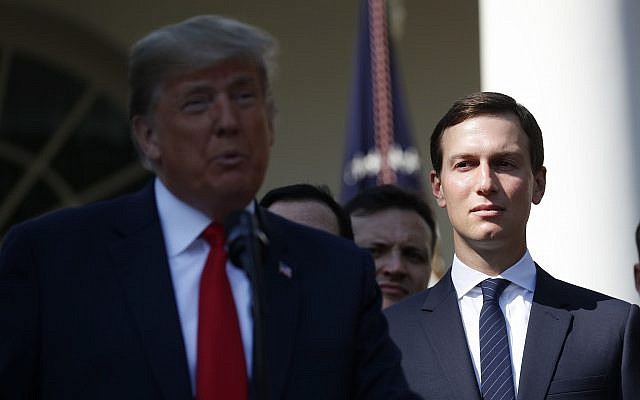News Analysis |
On Friday, a meeting of the Cabinet committee on China Pakistan Economic Corridor (CPEC) was held in Islamabad, which declared that Chinese and Pakistani investors will get an equal opportunity to invest in economic zones. The participants of the meeting decided that the government will start working on the Gwadar Port by the March next year.
Prime Minister Shahid Khaqan Abbasi chaired the meeting that discussed the details of the CPEC projects including the construction of Gwadar airport, free port, power and water supply, extension of the port and development of the Special Economic Zones.
After the meeting, while briefing the journalists, the special spokesperson of the PM, Musadik Malik, stated that the committee has sought the detailed proposal regarding the import of electricity from Iran to ensure the future needs of the country. In addition, the participants were informed about some completed and in-progress projects.
China wants a profitable opportunity and through its enterprises and investment, China seeks to capitalize on Pakistan’s failure to avert and transform its agriculture sector.
The lawmakers were told that the Southern Bay Expressway will be completed by January 2017 and the Northern Bay Expressway by December 2018. Besides, 14 km along the shore, 5 km offshore and the 9 km long East Bay Expressway of Gwadar has already been constructed.
CPEC has been labeled a potential game-changer for the beleaguered Pakistani economy. But, many political and economic analysts have predicted that CPEC will not bring a large dividend for the Pakistani investors.
Read more: Why China needs CPEC?
In the recent past, the media has also portrayed that Pakistani investors will be barred from the investment in the economic zones and it will be Chinese investors who would mainly be accommodated in the economic zones. But, the government has categorically denied this again in the meeting.
In the Dawn Leaks II, Khurum Hussain stated that the CPEC plan addressed the Chinese investors primarily at the number of places. According to Khurram Hussain, the CPEC plan says, “Chinese enterprises should seek coordinated cooperation with Pakistani enterprises and “maintain orderly competition and mutual coordination”. It does not say anywhere that there is an equal opportunity agreement between the governments.
Prime Minister Shahid Khaqan Abbasi chaired the meeting that discussed the details of the CPEC projects including the construction of Gwadar airport, free port, power and water supply.
In fact, the Pakistani government had failed to come clean and brief the media and people of Pakistan about the terms and conditions of Chinese investment and what the rate of return offered was and how would it benefit the Pakistani investors and its economy?It is believed that Chinese investors will be enjoying all sorts of tax breaks from customs, sales, income, federal excise and withholding taxes.
It means that Chinese companies are bound to get the preferential treatment and tax exemptions. Subsequently, it appears that it will be hard for the local companies to compete against the well-reputed Chinese enterprises. Why would Pakistani investors invest in a venture where it would be treated unfairly?
Read more: US is not against CPEC: An Indian view?
Even though the government has promised that it will provide equal opportunities to invest in CPEC economic zones, it has failed to publish the detailed plan on how it will make this happen? The share of the local investors is also not clear. For example, in Gilgit-Baltistan, out of the 73,000 square kilometers, cultivable land is just 1%.
The locals fear and have questioned that their land will be swallowed by the outside investors making them a minority. In any case that will leave no farmland or orchards for locals to earn their living.
Similar concerns are shown by Khurrum Hussain when he says that China is seeking full supply chain of Pakistan’s agrarian economy and it will run from one end of the supply chain to another, where Chinese enterprises will operate their own farms, processing facilities for fruits, vegetables, and grain.
On Friday, a meeting of the Cabinet committee on China Pakistan Economic Corridor (CPEC) was held in Islamabad, which declared that Chinese and Pakistani investors will get an equal opportunity to invest in economic zones.
The inputs like seeds, fertilizer and pesticides, and even the logistic companies will operate a large storage and transportation system for agrarian produce. In fact, China wants a profitable opportunity and through its enterprises and investment, China seeks to capitalize on Pakistan’s failure to avert and transform its agriculture sector.
The commitment shown by the government to facilitate the investors has been questionable thus far. The government’s attempt to consolidate its viewpoint that Pakistani investors would have an equal opportunity for investment in economic zones is unknown thus far, as they are yet to release any documents on the matter to the public.
Read more: How is the government confusing all of us on CPEC?
By this logic, rational profit-minded Chinese businessmen are expected to co-operate with Pakistani enterprises, which does not sound convincing, coupled with the facts discussed in the actual CEPC plan.














